
Kristen Krysko, MD, and Robert Fox, MD, look to the future of multiple sclerosis management.
Professor of clinical neurology, and George A. Zimmermann Endowed Professor in Multiple Sclerosis, Department of Neurology, University of California San Francisco

Kristen Krysko, MD, and Robert Fox, MD, look to the future of multiple sclerosis management.
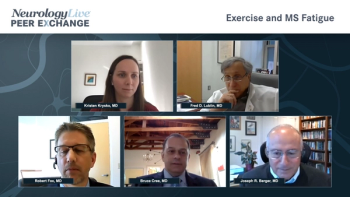
Considerations regarding the role of exercise and combatting fatigue when treating patients with multiple sclerosis.
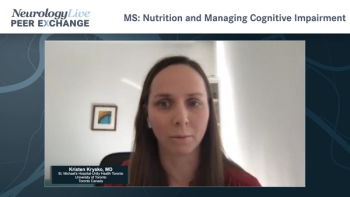
The importance of proper nutrition as a therapy for symptom control in multiple sclerosis and some strategies to manage cognitive impairment.
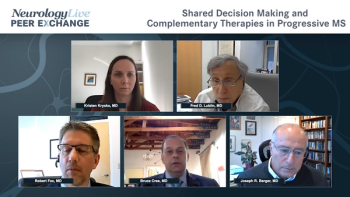
Joseph R. Berger, MD, elaborates on the importance of shared decision making in the treatment of multiple sclerosis and how it relates to complementary and natural therapies for symptom control.

The clinical research director at the UCSF Multiple Sclerosis Center discussed the findings of the long-term open-label assessment of inebilizumab in neuromyelitis optica spectrum disorder.
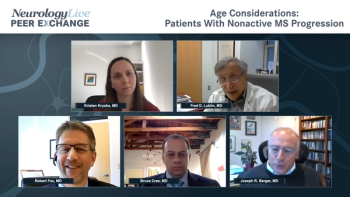
Considerations regarding age in treatment decisions in patients with nonactive multiple sclerosis progression.
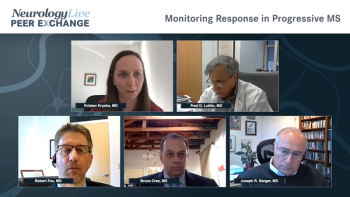
Experts discuss how they monitor response to multiple sclerosis therapies and disease progression.
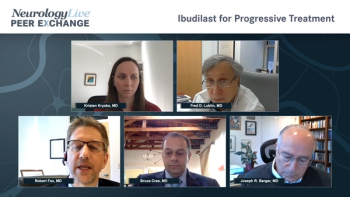
Experts in progressive multiple sclerosis summarize the phase 2 SPRINT-MS trial and the rationale for treating patients with ibudilast.
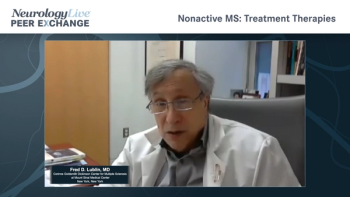
A discussion of how experts treat nonactive multiple sclerosis in terms of trial results or symptom management and how decisions are based on patient age.
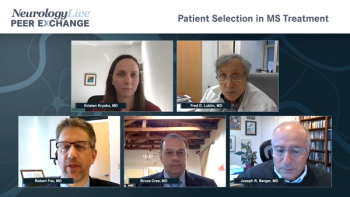
Experts in the field of multiple sclerosis discuss patient selection for drugs based on disease activity.
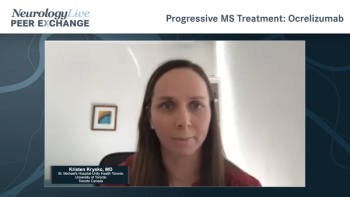
Kristen Krysko, MD, summarizes the results of the phase III ORATORIO trial and discusses the rationale for using ocrelizumab for the treatment of progressive multiple sclerosis.
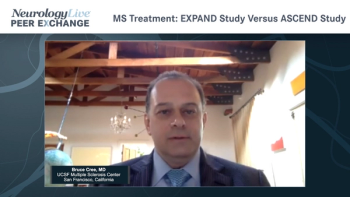
Experts in the field of multiple sclerosis compare the results of the EXPAND study to the results of the ASCEND study.
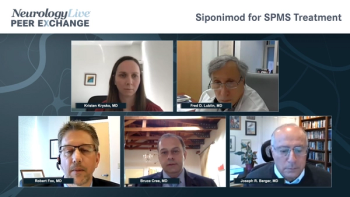
Robert Fox, MD, discusses the rationale for using siponimod for the treatment of progressive multiple sclerosis as well as the practical implications of the phase 3 EXPAND trial.
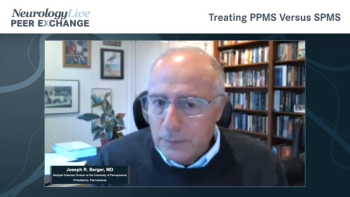
A comparison of various factors considered when treating primary progressive multiple sclerosis versus secondary progressive multiple sclerosis.
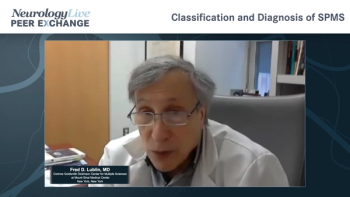
Fred D. Lublin, MD, leads a discussion about the different classifications of secondary progressive multiple sclerosis, including the relationship between disease activity and progression of disease.
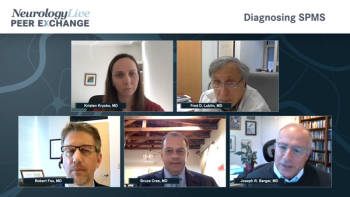
An overview of the criteria used to diagnose relapsing-remitting multiple sclerosis when it converts to secondary progressive multiple sclerosis.
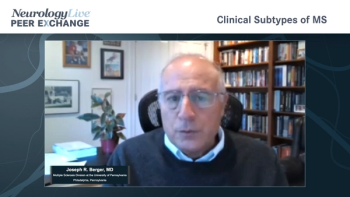
A panel of experts led by Bruce Cree, MD, highlight the clinical subtypes of multiple sclerosis including presentation and prevalence.

The clinical research director at the UCSF Multiple Sclerosis Center discussed potential future assessments of inebilizumab (Uplizna; Viela Bio) and the agents still in development for NMOSD.

The clinical research director at the UCSF Multiple Sclerosis Center discussed the efficacy of inebilizumab (Uplizna; Viela Bio) and biomarker data observed in the N-Momentum trial in NMOSD.

The clinical research director at the UCSF Multiple Sclerosis Center shared his perspective on the recent FDA approval of inebilizumab (Uplizna; Viela Bio) for NMOSD.

The clinical research director at the UCSF Multiple Sclerosis Center discussed the anticipated impact of the recent FDA approval of inebilizumab (Uplizna; Viela Bio) for NMOSD.
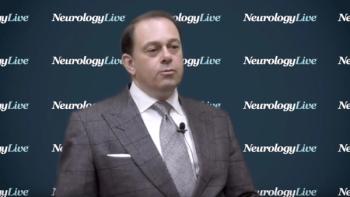
The clinical research director of the UCSF Multiple Sclerosis Center discusses recent data on siponimod and its impact on cognitive measures in patients with secondary progressive MS, as well as results of the 3-arm ASSESS study comparing low-dose fingolimod and glatiramer acetate.
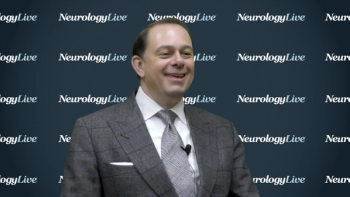
The clinical research director of the University of California, San Fransciso’s Multiple Sclerosis Center discussed the findings of a 230-patient study of inebilizumab versus placebo in NMOSD.